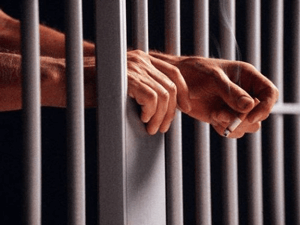While life in Thailand is generally much safer and more relaxed than most western countries, travellers and volunteers should still be vigilant and aware of danger. Even up here in the north, it is naive to think that nothing can happen to you, just because you're on holiday or doing good works.
It also is important to know what is illegal, considered inappropriate, and what would cause offence. Without taking the time to learn and understand the culture, travellers leave themselves more open to risk. Below lists some basic precautions, and points to be aware of. It is not exclusive, but covers most areas.
- Take precautions and be on your guard against pickpockets and bag snatchers. When walking along busy streets or travelling in open transport such as tuk tuks, be aware that foreigners have had items snatched by riders on motorbikes. If you plan to travel by bus, take precautions to ensure any cash and valuables you have are kept securely. There have been incidents where passengers have had items taken from bags while they slept.
- Western tourists have been victims of vicious unprovoked attacks by gangs in Koh Phangan. These attacks are particularly common around the time of the Full Moon parties and generally occur late at night near bars in Haad Rin. Exercise caution when walking in this area at any time, especially after dark.
- Be aware of the possibility of credit card fraud and do not lose sight of your credit card during transactions. Be careful to observe demarcation lines between shops and stalls, particularly in market areas and at Suvarnabhumi Airport. Taking items from one shop’s area to another may be treated as suspected theft. If this happens you may be arrested by police and asked to pay a substantial fine and/or face imprisonment.
- Violent assaults and robberies have been reported in Chaweng, Koh Samui. Attacks have also occurred in other tourist districts in Thailand frequented by western tourists. Care should be taken in such areas, especially at night.
- There have been incidents of sexual offences committed against foreign men and women, especially in the Koh Samui archipelago. Since 2009, a number of foreign visitors have been victims of serious sexual offences.
- There have been incidents where tourists have had their drinks drugged in both tourist areas and red light districts. Be careful about taking drinks from strangers and at clubs and parties, particularly in the Koh Samui area and, at the Full Moon party on Koh Phangan, where date rapes have been reported. Some foreigners have suffered severe psychiatric problems because of drug use, resulting in some suicides.
- Tourists have also been robbed after bringing visitors to their hotel rooms. In some cases their drinks were drugged. Ensure that your passport, wallet and other valuable possessions are secure at all times.
- Alcohol and drugs can lead to you being less alert, less in control and less aware of your environment. If you drink, know your limit. Drinks served in bars overseas are often stronger than those at home.
- You should report any incidents of crime to the Thai police before leaving the country.
- Never become involved with drugs of any kind in Thailand. Possession of even very small quantities can lead to imprisonment. If you are found guilty of being in possession of marijuana you are likely to receive a long prison sentence and a hefty fine. Amphetamines and Ecstasy are regarded as Class A drugs and possession or trafficking of them carries the same penalties as heroin. If you are found guilty of being in possession of 20 grams of a Class A drug at a point of exit from Thailand you will most likely be sentenced to death.
- It is a criminal offence to make critical or defamatory comments about the King or other members of the Royal family in Thailand. This is known as Lèse Majesté and is punishable by a prison sentence of three to fifteen years, or longer. Foreign nationals have been convicted of Lèse Majesté.
- It is illegal to import more than 200 cigarettes per person into Thailand and this is enforced at customs at the airport on arrival; those who exceed the limit face heavy on-the-spot fines and confiscation of the cigarettes.
- By law, you must carry your passport with you at all times in Thailand. Tourists have been arrested because they were unable to produce their passport upon request. Ensure you complete the next of kin details section in the back of your passport.
- An international or Thai driving licence is required to drive in Thailand.
- In Thailand 124,855 people were killed in road traffic accidents between 2000 and 2010 meaning that on average there are over 12,000 deaths a year from road traffic accidents. In the UK there have been on average about 3,000 deaths from road traffic accidents each year over the past decade. With motorcycles so widely used in Thailand the majority of road traffic accidents involve motorcycles, although accidents involving other vehicles including cars, coaches and mini-buses also occur. If riding a motorcycle in Thailand take the same safety precautions as you would at home. According to Thai law, safety helmets must be worn.
- The motorcycles or scooters for hire in beach resorts are often unregistered and cannot be used legally on a public road. Before you hire a vehicle, check your travel insurance policy to ensure that you are covered and check the small print of the lease agreement. Never hand over your passport as a guarantee against returning a motorcycle or scooter. Unscrupulous owners have been known to hold on to passports against claimed damage to the motorcycle or scooter. Click for detailed information regarding motorcycle hire.
- Riding ‘Quad-bikes’ can also be dangerous. It is illegal to drive these on the roads in Thailand even though they are available to hire on the roadside.

